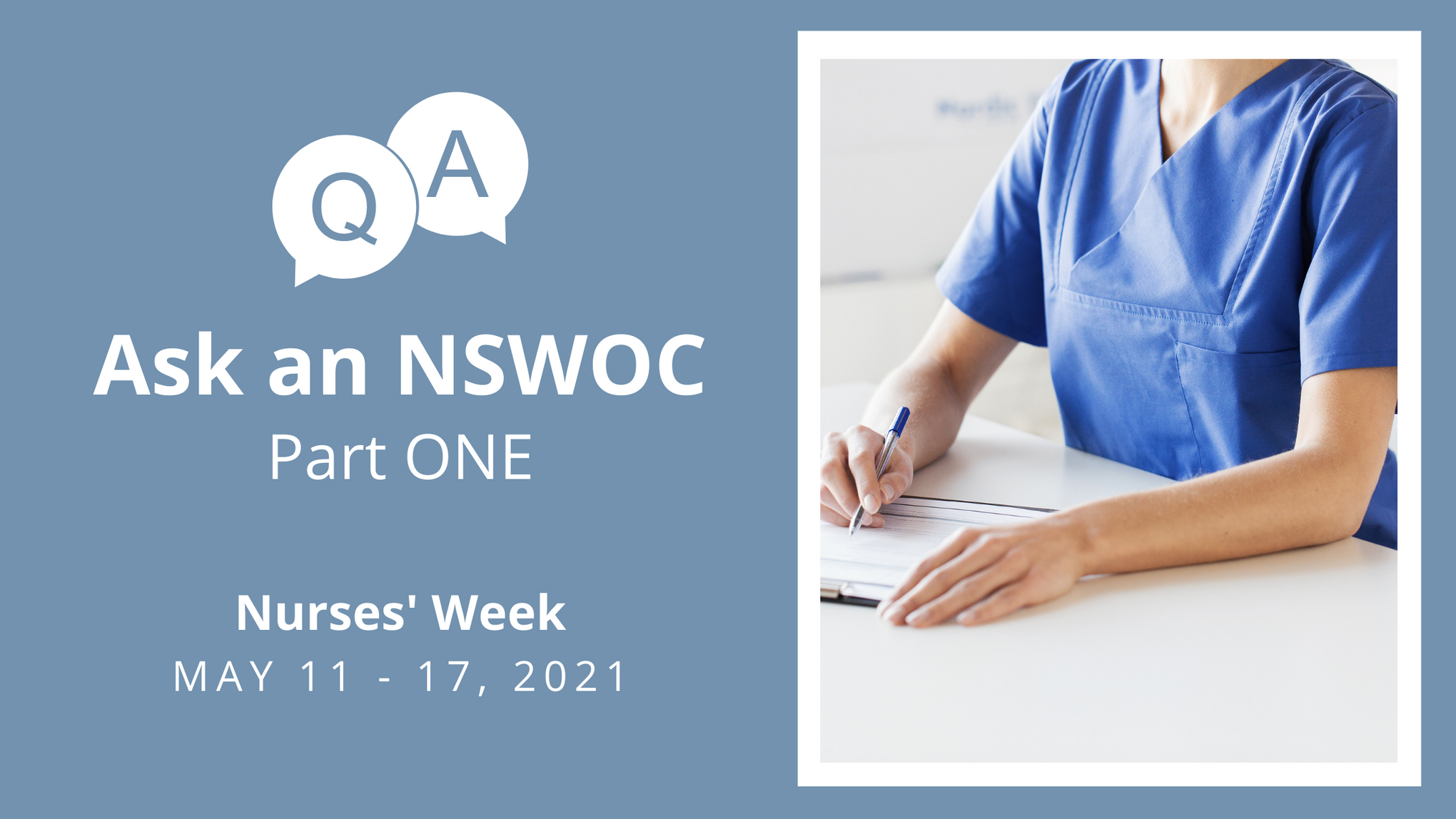On May 12-15, 2021, Nurses Specialized in Wound, Ostomy and Continence Canada (NSWOCC) will be celebrating their 40th Anniversary and 2021 National Conference: an eWOC Educational Summit, virtually! To commemorate this annual event, we reached out to a few NSWOCs to answer some frequently asked questions patients have. This article is PART ONE. Stay tuned for part two!
What do I bring if I am admitted to the hospital?
Besides your toothbrush and other personal items, it is wise to bring at least one ostomy pouching system change and a list of your usual ostomy supplies including the manufacturer and product numbers.
Hospitals have contracts for their ostomy supplies. You will be asked to use the products supplied by their vendor. Most hospitals will try to obtain the closest equivalent to the products you are currently using. However, hospitals keep a limited supply of products on-site and it takes time to bring in other products. With short hospital stays you may well be discharged before the products even arrive. If you have or have had pouching challenges, it is recommended to bring in your own products to decrease the risk of leakage and skin damage.
If you are having difficulty obtaining the supplies you need or are experiencing pouching challenges ask to see the hospital’s Nurse Specialized in Wound Ostomy and Continence (NSWOC).
It is your choice if you wish to bring in and use the products you are familiar with or use the products supplied by the hospital.
Source: Laureen Sommerey, NSWOC
Do I need to connect to night drainage with my urostomy?
A night drainage system is beneficial because it drains your pouch during the night, allowing for longer sleep periods.
Getting your rest is important especially during the first few months after your surgery as your body needs to heal. Some people find their urinary output increases during the night and so the extra drainage system will help to manage that volume. Some people however find the tubing tangles in their legs and disturbs their sleep so they would prefer to get up once or twice per night to empty their pouch. Others have had issues with position and kinking of the tubing which results in pouch overflow causing a flange leak.
The use of night drainage is optional depending on the individual but everyone should consider using mattress protection. DANAMAT are ultrabsorbent water-proof pads geared towards individual-use, which may help avoid a total bed change at 2am; visit Nightingale Medical should you wish to pick one up.
You can also discuss with your NSWOC any questions you have about what may be the best for your specific needs.
* Nurse Specialized in Wound Ostomy and Continence


